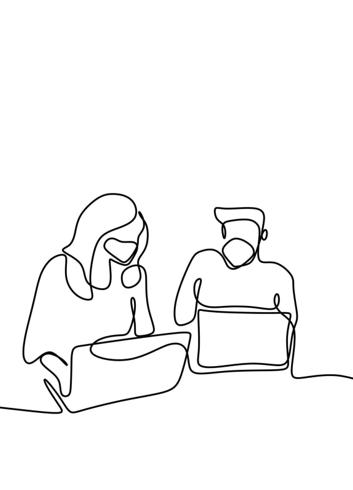
Expert eye: Covid-19 as an opportunity for the development of sustainable local communities
Joeffrey Gueniche is Deputy Mayor of Fontenay-sous-Bois, in charge of Development of Democratic Life and Popular Education. He discusses the local and long-term consequences of Covid-19.
Fontenay-sous-Bois is a commune of more than 50 000 inhabitants located in the eastern suburbs of Paris, France. This city feels concerned about the ideas of sustainable development and resilience and wishes to adapt to the new constraints brought by global warming. Its aim is to offer fair and responsible public services to its citizens. In that sense, in 2019, it notably worked on projects such as the eco-construction of a school with limited environmental impact and the capacity to adapt to climate change. This city offers a great outlook of the local actions and reactions of communities to Covid-19. It offers a great reflexion upon the shift that local governments and citizens should take in response to the pandemic.
How has the city hall of Fontenay-sous-Bois been affected by Covid-19?
The first round of municipal elections took place on the 15th of March 2020, a day before lockdown started in France. This brought uncertainty and complexity to the situation. In addition to having to deal with elections-related topics via online meetings, municipalities had to take care of Covid-19 related issues such as food and mask distributions. Politics being largely based on demagogy and popular education on discussion with citizens, it has been difficult for the town hall officials to work efficiently under the lockdown. Today, there still is a lot of uncertainty. It is impossible to think long-term and most of the energy is used to deal with urgent issues brought by the pandemic. This leads to the emergence of a new approach to politics. We need to get used to this new approach as it might last in time.
What has been the involvement of public institutions in this crisis? How did the population react to this?
Governments, schools, hospitals have been key actors of the crisis. This raised the awareness towards the importance of public institutions. It also pointed out that each scale was essential to the functioning of countries, notably the local authorities. Indeed, the role of municipalities has been central when dealing with the issues brought by Covid. They have been the onsite actors of the crisis, putting into realization the government directives as well as developing their own initiatives. They locally took care of health and food related issues as well as making sure that the lockdown was carefully respected; but not only. They thought and organized solidarity models, which have been essential to the wellbeing of the population. The citizens have been really thankful and demanding of such initiatives.
How has Covid-19 impacted people’s mentality more generally?
Covid-19 had a dual impact on mentalities and polarized the population. On one side, it reinforced the fear of others and pushed people into individualism. Indeed, others can be seen as a potential threat. People are looking for someone to blame. On the other side, citizens have also been at the origin of solidary initiatives. This tendency was already observable before the pandemic but Covid-19 has been a catalyzer and accelerated this trend. Indeed, when being unable to socialize, people have realized how important it was to them and their environment to share moments together. They tried and identified alternatives to continue sharing moments and helping each others as they could. They would probably not have done so without the pandemic. This pointed out our resourcefulness.
Do you think that Covid-19 could be a motor of sustainable development? Can we imagine a more resilient future following this crisis?
Rising concerns towards ecology has been shown by a rise in the number of votes for the French green parties during the local elections. This might be because Covid-19 recalled us that we were vulnerable to unpredictable and uncontrollable events. Indeed, such a small virus can disrupt a lot our daily lives. This also made obvious that we were extremely vulnerable to other issues such as the current climate crisis and the future potential natural disasters, shortages…
This pandemic showed as well the limits of our dependence to international markets following the globalization. The solution to this is going back to local production of essential goods and services. Also, seeing some of the most polluting industries: transportations, tourism, aeronautic – stopped made obvious their extremely negative impact on the climate. It also pointed out green alternatives such as cycling, that in the end have not been too hard to implement.
Economically, this pandemic made clear that in the event of a crisis the government was able to allocate large funds to the implementation of solutions. We can then wonder if the governments could not allocate more funds to the implementation of concrete green solutions. Indeed, the sanitary crisis we are currently living is really deadly but so is the environmental crisis we are facing since much longer times.
In that sense, Covid-19 has been a motor for sustainable development. However, we can question whether this positive effect is going to last in time. Indeed, it increased the importance of digitality, with the increase in online activities. We can question the impact of the digitalization on sustainability. For example, the cost in resources and energy of 5G could be really important. Also, in the long term, there is a high probability that enterprises and governments end up wanting to go back to fast and unsustainable growth to cope with the “loss” generated by the pandemic.
For you, what would be the optimal post-Covid economic model?
Jobs should be relocated locally, and a rural migration should take place. More importance should be brought to public services such as health, education, transports and personal services (care for the elderly, childcare, etc.).
The government should intervene more on energy, housing, education, transportation related issues and create jobs in those sectors. The main constraints are that the population will not necessarily have the skills and be willing to do these jobs.
The ideal would be to accept negative growth and question fundamentally the way our world works. However, for this to work, this awareness needs to be international; otherwise, other states could take advantage of it. This does not seem really realistic.
Even if it is hard to think optimistically regarding the future, we should remain optimistic in our actions. We have to feel concerned and act for a better future, but remain aware of the complexity of the current situation.
Interview realised by Maëlle Waché, for the Econogy Project.





Leave a Reply